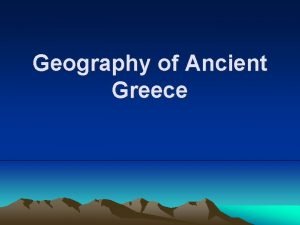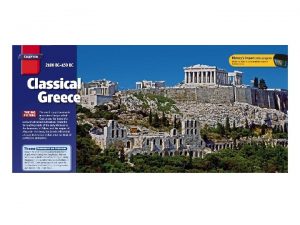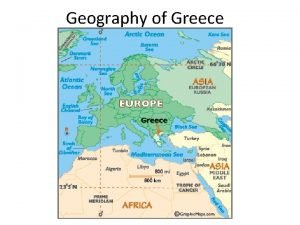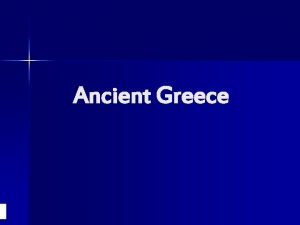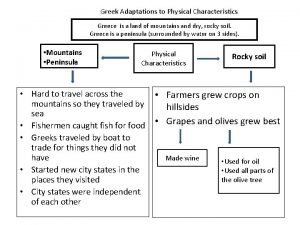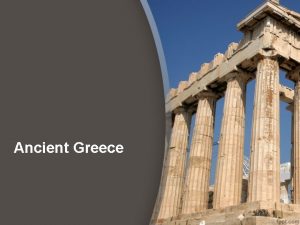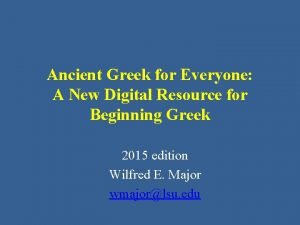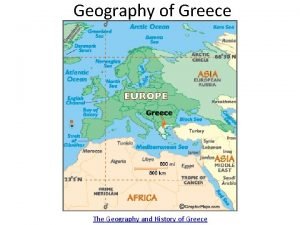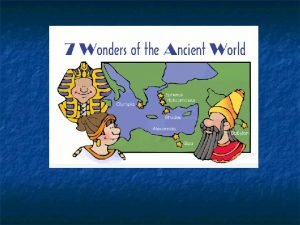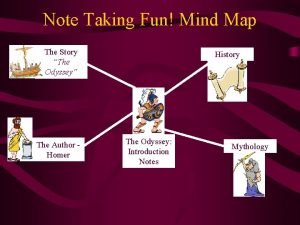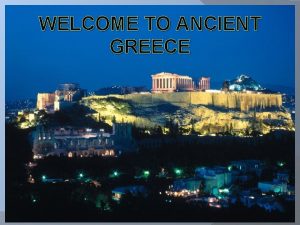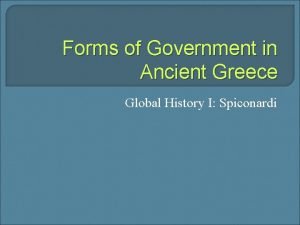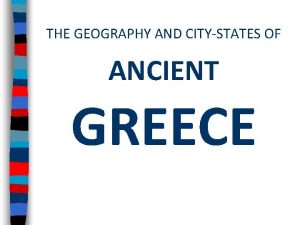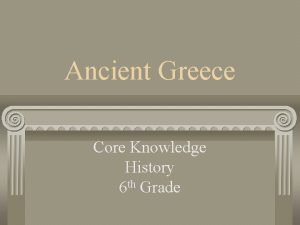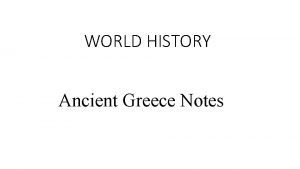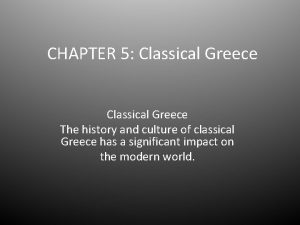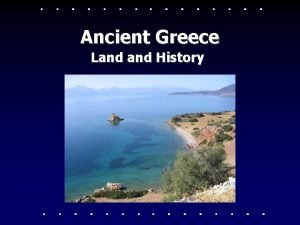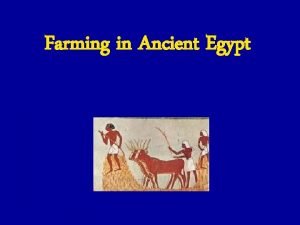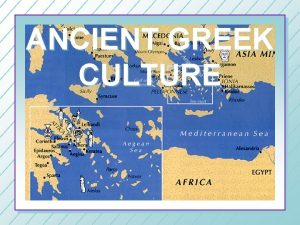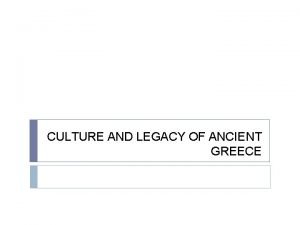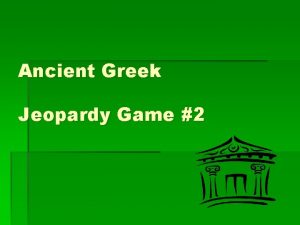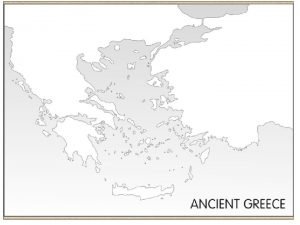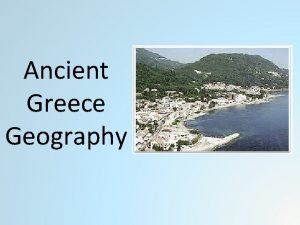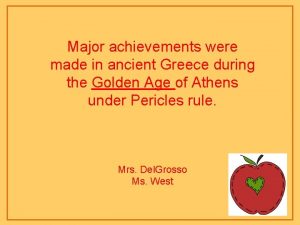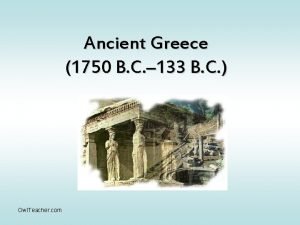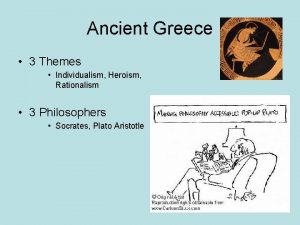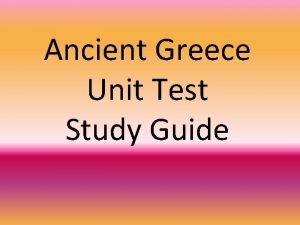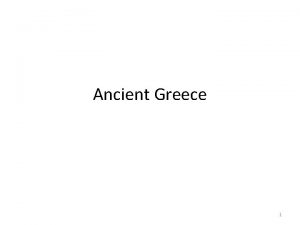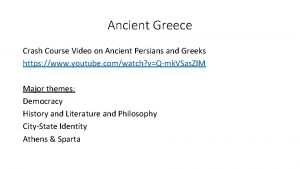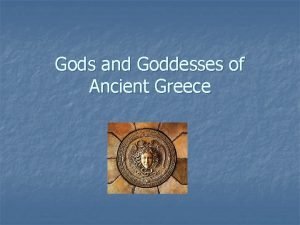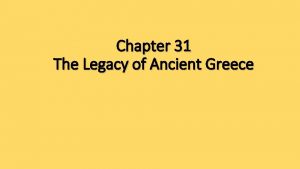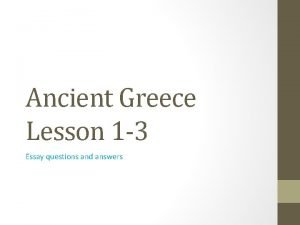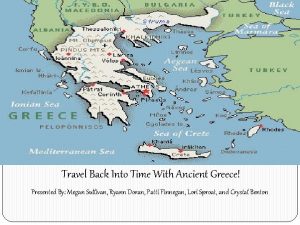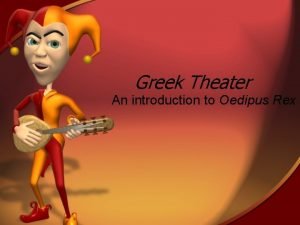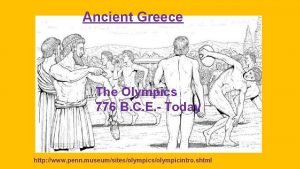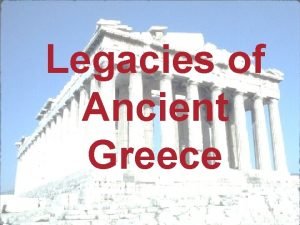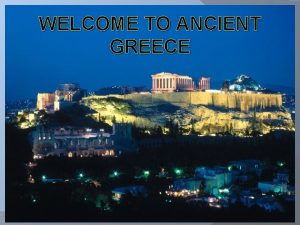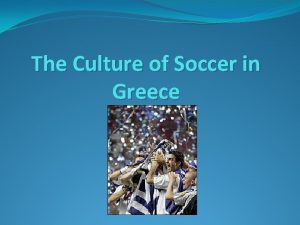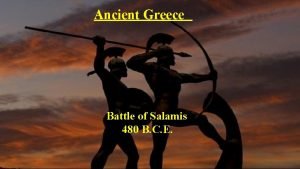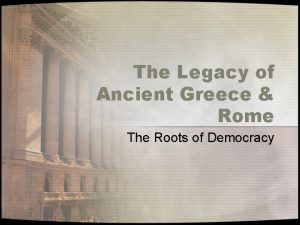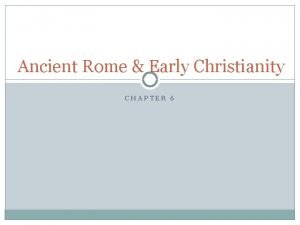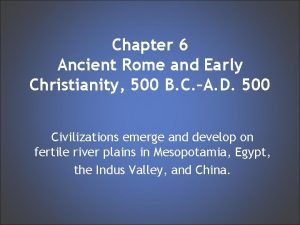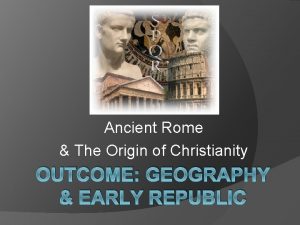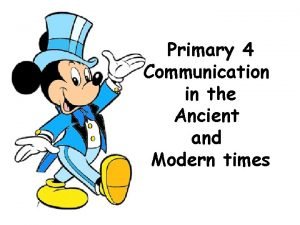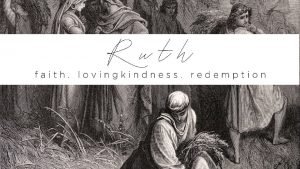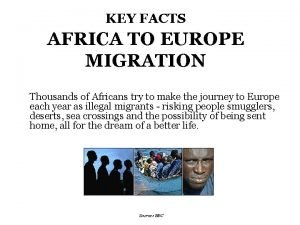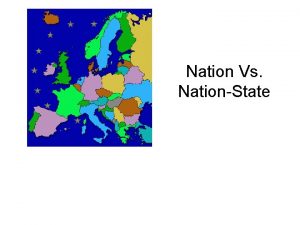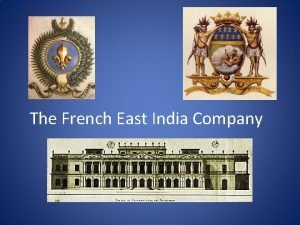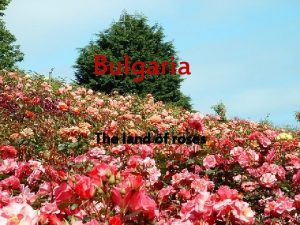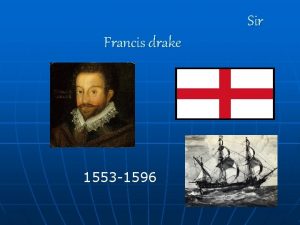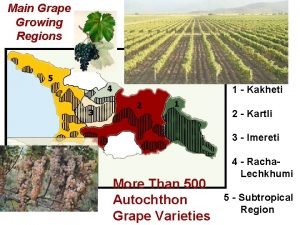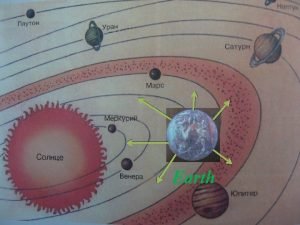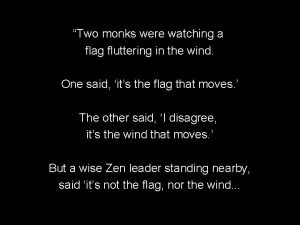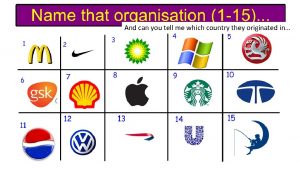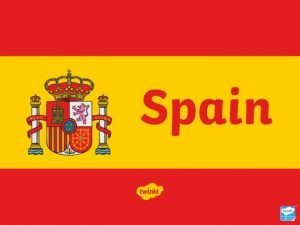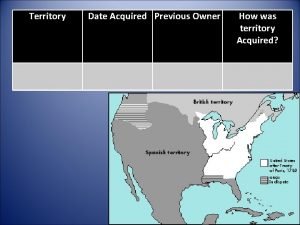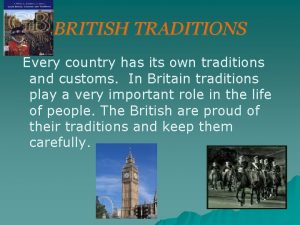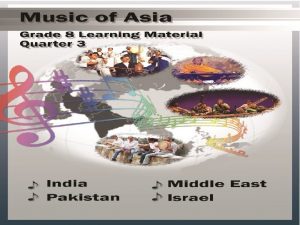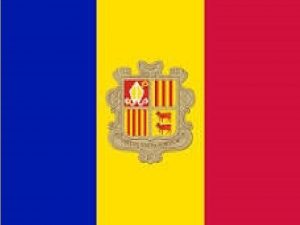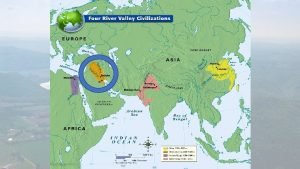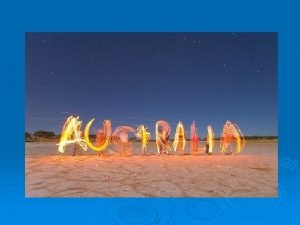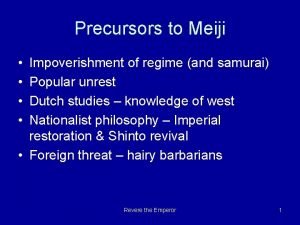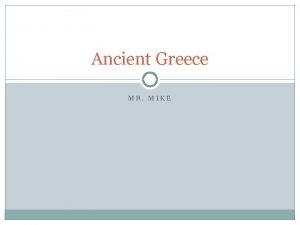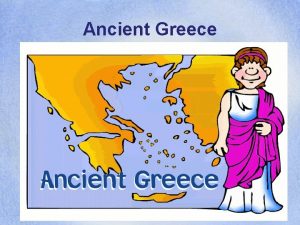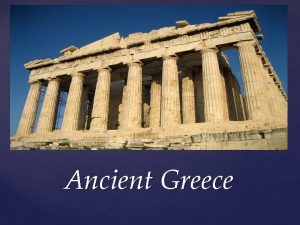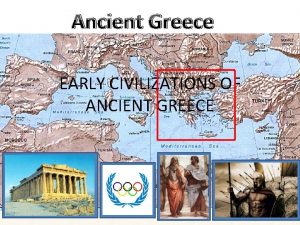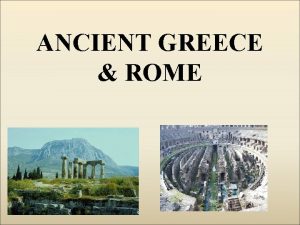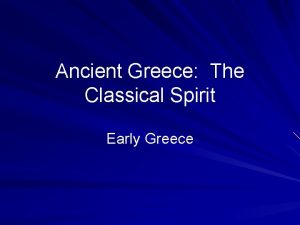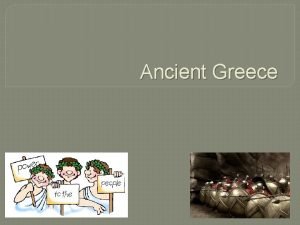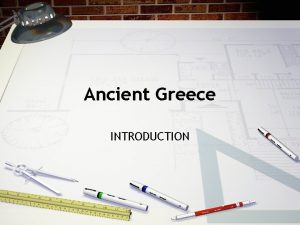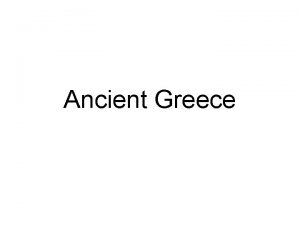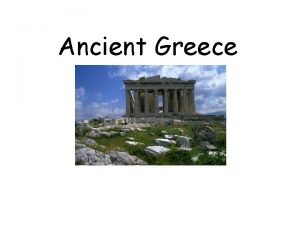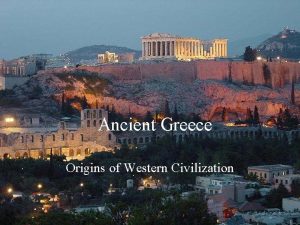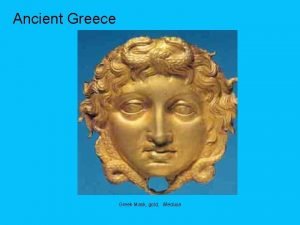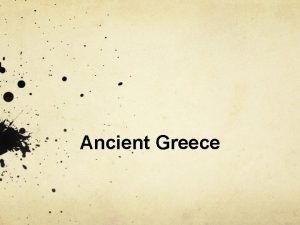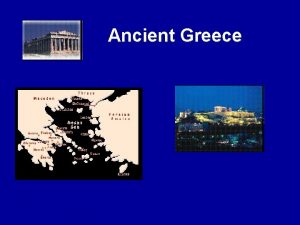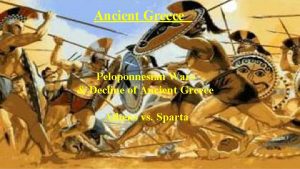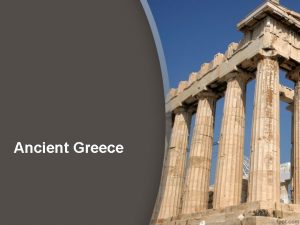Early Greece Ancient Greece is a country in

































































































































- Slides: 129


Early Greece

Ancient Greece is a country in Europe. In ancient times, people lived along the huge coastline where food was plentiful.

New Towns The Greeks loved to explore and they loved to build towns. They explored the Mediterranean looking for new places to build. Not everyone was glad to see them. Egypt chased them away. They had better luck in: • Turkey • Italy • France

The Minoans were known to have homes that resembled palaces. They had beautiful furniture and belongings and their homes were often over three stories high. Even poor people had fourroom stone houses with running water and bathrooms that flushed!


The Minoans. . what happened to them? ? Natural disasters hit Crete! • Earthquake (around 1700 BCE) • Volcanic eruption (around 1500 BCE) • Tidal waves (following volcanic eruption) • WAR “Good thing we did not build there!” the Greeks agreed happily.

The Mycenaeans were another tribe of early people. They fought the Greeks and won. They ran things for a while, until a new group, the Dorians, came down from the north. The Dorians had iron weapons! Why would that be a big deal?

The Dorians Around 1200 BCE, after the Dorians took over, all written records stopped. The Dorians did not write things down. Greece fell into a dark age!

Question: Why did ancient Greece fall into a dark age when the Dorians took over?

Answer: The Dorians did not have a written language. We have no written record of what went on in ancient Greece for a period of nearly 400 years while the Dorians ruled.

Fables, Legends, and Myths

Greek Dark Ages We know about these early people because they told stories, the same stories, over and over. In no time, nearly everyone in ancient Greece knew all the stories by heart. The Greeks loved stories!

Greek Stories The Greeks told three kinds of stories: 1. Fables

Greek Stories The Greeks told three kinds of stories: 1. Fables 2. Legends

Greek Stories The Greeks told three kinds of stories: 1. Fables 2. Legends 3. Myths

Greek Fables A fable is a story that ends with a lesson to be learned. The Boy Who Cried Wolf The Tortoise and The Hare

Greek Legends A legend is a popular story that has been told over and over about something that happened in the near or far past. To be a legend, there can be no factual evidence that the story is true.

Greek Legends After the dark ages, Homer, a Greek poet, wrote down many of the Greek legends. One famous legend was about the Trojan War.

The Trojan Horse The Greeks had been fighting the Trojans for ten long years. The Greeks could not get over the walls around Troy, and the Trojans could not drive the Greeks away. One day, a Greek general had an idea.

The Trojan Horse “Let’s pretend to sail away. We’ll leave a gift to end the war, a wooden horse with thirty men hidden inside. At night, these men can sneak out and open the gates of Troy!”

The Trojan Horse The best Greek artists built the horse. The horse was brought to the gates of Troy and left there. The Greeks sailed away. The Trojans thought they had won the war! They dragged the horse inside their city and closed the gates.

The Trojan Horse That night, while the Trojans were asleep, the Greek ships returned. The Greeks crept out of the wooden horse and opened the city gates. Thus began the destruction of Troy.

Greek Myths A Greek myth is a story about one or more magical deities.

Greek Myths The ancient Greeks asked their gods for advice. Advice was not free. You had to bring an offering (a piece of jewelry or some food), but it was worth it if you could get the gods on your side. The gods were very tricky!

Greek Myths Zeus was king of all the gods. He had many magical powers. He also had a temper. When Zeus got mad, he made thunder and hurled lightning bolts. People were terrified of Zeus.

Greek Myths His son Apollo was a gentle god, usually. When the people needed advice, they asked Apollo. They were not as afraid of Apollo as they were of some of the other gods.

Apollo’s Oracle “What I need is an oracle, ” Apollo said to himself. An oracle was a woman who could interpret and predict the future. People could ask the oracle their questions instead of asking Apollo looked around for a place to build a temple. He chose Delphi.

Apollo’s Oracle Apollo killed a snake with his bow and arrow. He placed the powers of the snake in a bracelet, and put the bracelet on the arm of a lovely young woman who was passing by. “You will be my oracle, ” he told her.

Apollo’s Oracle Apollo turned himself into a dolphin. He swam off in search of priests to care for his temple. He spotted some on a Cretan ship. He placed the priests on his back and returned to Delphi. He turned back into his handsome self.

Greek Myths People flocked to Apollo’s temple to ask their questions. Always, the Oracle answered. The Oracle always told the truth. You had to listen carefully to make sure you understood the answer she gave you.

What Is the Oracle Saying? Once, a great king came to the Oracle at Delphi. “Oracle, ” he asked. “Will I ever win the war? My people are weary. My men are weary. And I am weary. Only my son wants to continue the fight. What will become of us? ”

What Is the Oracle Saying? “A king will win the war tomorrow, ” answered the Oracle. “Tomorrow!” The king brightened. “I must hasten home. Oracle, you have saved my life!”

What Is the Oracle Saying? You must figure out the truth for yourself. That’s how oracles work. And that is the problem with oracles!

Results of the Grecian Dark Ages

The Greeks Become One People Before the dark ages: • Several different languages • No common history • Stone tools and weapons

The Greeks Become One People During the 400 years of the dark ages, the Greeks developed: • A common spoken language • A common written language • A common history (myths, fables, and legends)

The Greeks Become One People After the dark ages: • Greek art began to reappear • Greek weapons were made of iron • Greek trade again grew

Question: When the dark ages were over, what three important things did the ancient Greeks have in common?

Answer: • They spoke the same language. • They worshiped the same gods. • They shared a common history. They thought of themselves as Greeks.

Greek City-States

Greek City-States After the dark ages, exciting things began to happen in ancient Greece.

Greek City-States Villages banded together to form strong trading centers called city-states.

Greek City-States There were many powerful city-states in ancient Greece.

Greek City-States Each city-state had its own way of doing things. We are going to take a closer look at three of them: the city-states of Sparta, Athens, and Corinth.

Sparta In the city-state of Sparta, kids were taught to be good warriors. They were beaten by older children to toughen them. They were not allowed to cry.

Spartan children were given very little food. They were encouraged to steal food instead. If you were caught stealing, you were beaten. In the ancient city-state of Sparta, kids were taught how to lie, cheat, and steal, and how to get away with it. That was the Spartan way.

Sparta: Government The Spartans were ruled by a small group of retired warriors. The Spartans would not have accepted rule from anyone less than a group of famous warriors, as war was their life. The Spartans practiced a form of government called an oligarchy—rule by a few.

Sparta People who lived in other Greek city-states did not want to live as the Spartans lived, but they valued Sparta’s friendship.

Sparta In times of war, every city-state wanted Sparta on its side. The Spartans were tough. The Greeks admired strength.

Athens went to war quite frequently. All the ancient Greeks were warriors. But Athens did not focus on war as did Sparta. Athens was proud of its many scholars, teachers, artists, and scientists.

Athens In Athens, kids were trained to become good citizens. Boys studied drama, public speaking, reading, writing, math, and science, and went to military school for two years.

Athens believed it had an advantage over other city-states. The ancient Greeks believed that every city -state was “claimed” by a god or a goddess, a deity who looked after the city.

Athens believed it had the best deity of all. The goddess who claimed Athens was the goddess of wisdom, the gentle and wise Athena.

Athens: Government Over the years, Athens experimented with different types of government. Athens invented a new form of government called democracy, which means “power of the people” or “rule by many. ”

Athens: Trial by Jury Socrates was a famous teacher who lived in Athens. He wanted his students to question things. “Is our government good? If gods exist, where do they live? ”

Athens: Trial by Jury A Greek playwright wrote a play that made fun of Socrates. It was performed in an open-air theatre at night. In the play, Socrates said, “If the moon is made of cheese, are there mice in the heavens? ” People laughed.

Athens: Trial by Jury Some men did not laugh. They did not like the way Socrates was teaching their sons. One day, someone asked the Oracle, “Who is the wisest man alive? ” The Oracle answered, “Socrates. ” The Oracle’s answer made some people angry.

Athens: Trial by Jury In ancient Athens, any citizen could demand a trial. Whichever side lost had to pay for the cost of the trial. If the accused was found innocent, those bringing charges could be punished for wasting the court’s time. If the accused was found guilty, the accused would be punished.

Athens: Trial by Jury The men who were angry accused Socrates of mocking the gods. They demanded a trial. There were two hundred citizens on the jury who listened to what they said.

Athens: Trial by Jury If Socrates had spoken up, he would have been found innocent. But he refused to defend himself against such a ridiculous charge. The jury had no choice but to find him guilty.

Corinth was a coastal citystate famous for its bronze statues, pottery, and vases. Its schools were nearly as fine as schools in Athens.

Corinth’s government was a monarchy, which means “rule by one. ” Corinth was ruled by a king.

Corinthians were great problem solvers. They solved the problem of foreign money pouring into their coastal town by creating their own coinage.

Corinth The problem of unemployment was solved by building new open-air theatres for their growing population. Corinth was not, perhaps, as powerful as Athens or Sparta, but Corinth was an important city-state in ancient Greece.

Sparta, Athens, Corinth Sparta was militant. Athens was proud. Corinth was clever.

Sparta, Athens, Corinth Sparta was an oligarchy—ruled by a few. Athens was a democracy— ruled by many. Corinth was a monarchy—ruled by one.

Greek City-States There were over 1500 different Greek citystates in BCE times. Each ran its city -state in its own way.

Greek City-States The people in each Greek city-state had many things in common: • They spoke the same language • They worshiped the same gods • They shared a common history • They loved competitions and games

Greek Olympics Over 2500 years ago, the ancient Greeks invented the first Olympic games.

Greek Olympics Athletes from all Greek city-states competed in the Greek Olympics.

Greek Olympics Besides athletic competitions, there were musicians, jugglers, fortune tellers, and vendors selling food and goods. Only men could attend.

Greek Olympics The games were held every four years for over 1200 years, in honor of Zeus, king of the gods.

Question: The ancient Greeks did not have a central government. Each city-state had its own way of doing things. What three important things did the ancient Greeks have in common that held them together as one people?

Answer: • They spoke the same language • They worshiped the same gods • They shared a common history They thought of themselves as Greeks.

Daily Life in Ancient Greece

Greek Daily Life was different in Sparta than in other Greek city-states. Spartan women could run a business or visit whomever they wished. Spartan men visited their family, but they did not live at home. They lived in the soldiers’ barracks until they retired.

Greek Daily Life In the rest of ancient Greece, women had no freedom. Women had to ask their husband’s permission to do anything outside the home. Even a simple thing like visiting a female neighbor needed permission.

Greek Daily Life Men: Men ran the government, business, and fields. Men hunted, sailed, wrestled, and attended the Olympic Games. Women: A woman’s job in ancient Greece was to take care of the house and children. Except in Sparta, women had to have their husband’s permission to leave the house for any reason.

Greek Daily Life Babies: When a child was born, the ancient Greeks placed a wreath of olives on their door (for a boy) or a wreath of wool (for a girl). Girls: With the exception of Sparta, girls stayed at home until they married. They helped their mothers.

Greek Daily Life Boys: Boys helped in the fields and went fishing and sailing. At age 6 or 7, they went to school. Toys: • Rattles • Horses on four wheels • Yo-yos • Terra cotta dolls

Greek Daily Life Most households in ancient Greece had slaves. Slaves either did all the work or helped with the work. Slaves could NOT: • Go to school • Enter politics • Use their own name

Greek Daily Life Slaves could: • Clean • Cook • Work in the fields, shops, mines • Work on ships • Act as tutors In Athens, even the police force was made up of slaves!

Greek Daily Life Homes: Greek homes were made of wood and brick. They had 2– 5 rooms built around an open courtyard. Large homes had a kitchen, and most homes had a bathtub.

Greek Daily Life The heart of the home was the courtyard, or atrium. The atrium was partly covered with a roof to protect the family from rain and sun. Much of ancient Greek family life centered around the courtyard.

Greek Daily Life Atrium: The family gathered in the courtyard to hear stories told by the mother or father. Greek women relaxed, chatted, and sewed in the courtyard. Most meals were served there.

Greek Daily Life Clothing: Greek clothing was simple. Men and women wore linen in the summer and wool in the winter. The ancient Greeks could buy clothing in the agora, the marketplace. Most families made their own clothes.

Greek Daily Life Food: • Vegetables • Olives, grapes, figs • Goat cheese and milk • Wheat for bread Meat was rarely eaten and was used mostly for religious offerings.

Greek Daily Life Jewelry & Perfumes: Traveling peddlers sold jewelry, hairpins, rings, and earrings. Both men and women used perfume, made by boiling flowers and herbs.

Greek Daily Life Hair Styles: Both men and women used mirrors and hairbrushes. Hair was curled and held in place with scented wax, or worn in ponytails and braids. Headbands were popular.

Greek Daily Life Barbershops: Barbershops first became popular in ancient Greece. Men exchanged political and sports news, philosophy and gossip in the barbershops!

Greek Daily Life Dance: The Greeks invented over 200 dances. Men and women did not dance together. They each had their own special dances. Dance was accompanied by music played on lyres, flutes, and percussion instruments.

Quiz Question #1 Where did Spartan men live when they were in Sparta? At home With their parents In the soldiers’ barracks

Quiz Answer #1 Spartan men lived in the soldiers’ barracks

Quiz Question #2 What was a woman’s job in ancient Greece? To cook and clean To sew and mend To take care of the house and children

Quiz Answer #2 A woman’s job in ancient Greece was to take care of the house and children

Quiz Question #3 What important thing happened at the barbershops besides grooming? News was spread Meat was sold Stamps were purchased

Quiz Answer #3 One important thing that happened at the barbershops besides grooming was that news was spread

Wars and Expansion

The Persian Wars: Marathon, Thermopylae, Salamis Persia was a huge empire that stretched from the Mediterranean Sea all the way to the Indus River in Pakistan.

The Persian Wars: Marathon, Thermopylae, Salamis Turkey had fallen under Persian rule. Athens sent supplies to the Greek cities along the Turkish coast.

The Persian Wars: Marathon, Thermopylae, Salamis This made the Persian emperor Darius very angry. He gathered his army and navy and sailed off towards Greece and Persia fought three battles. The Greeks won all three. Persia forgot that although the Greeks often fought among themselves, they stood together against a common enemy.

The Delian League After the Persian Wars, the city-states of ancient Greece formed the Delian League. They put money in a shared treasury to be ready to fund a war.

The Delian League Athens guarded the treasury. Athens only kept 1/60 th of it to pay for storage, guards, and bookkeeping. Still, even that small percentage made it rich.

The Delian League Athens and Sparta were both powerful city-states, but so very different in their outlook and behavior. Sparta grew distrustful. Was Athens being honest about the money?

Peloponnesian Wars Athens and Sparta went to war for 30 years. Sparta won. Athens never really recovered from the war. After the war, Athens was ruled by a king. Democracy was dead.

Alexander the Great was born in 356 BCE. He was the son of the king of Macedonia was not a Greek city-state. It was a huge country in northern Greece.

Alexander shared a common history with the Greek city-states: • He spoke Greek • He had Greek teachers • He believed in Greek gods

Alexander When Alexander became king, he expanded Macedonia into an empire. He wanted to spread Greek achievements and culture. He wanted everyone to speak the same language so they could share knowledge.

Alexander Like all Greeks, he loved to establish new cities. He built over 70 cities in the short time he was a ruler. Everywhere he went, he introduced: • Greek money • Greek language • Greek literature • Greek science, math, and medicine

Alexander He allowed conquered tribes to run their own countries if they accepted Greek ways. Those who fought back died. Alexander never lost a battle. Alexander died young. He had been boating in a marsh for fun. He became quite ill and died.

Alexander’s achievements: • He never lost a battle • He conquered the entire known world • He spread the Greek language • He introduced Greek myths to the world • He brought Greek science to the world

Question: Alexander pulled the ancient Greeks together under one leadership—his. What happened to Greek city-states? Did they continue, or did they disappear with the coming of Alexander?

Answer: • Loyalty to one’s city-state remained • Power in each city state weakened • Alexander ruled the known world But since he thought of himself as Greek, the Greek people were encouraged to continue their way of life, as long as they were loyal to Alexander.

Gifts from the Greeks

Gifts from the Greeks The earliest Greek civilizations thrived nearly 4000 years ago. Yet their culture still impacts our lives today in the arts, philosophy, science, math, literature, and politics.

Gifts from the Greeks There is an old saying, “Beware of Greeks bearing gifts. ” The truth is, we are very grateful for the many gifts the Greeks gave the world.

Greek Architecture: The Greeks invented three types of columns: 1. Ionic

Greek Architecture: The Greeks invented three types of columns: 1. Ionic 2. Doric

Greek Architecture: The Greeks invented three types of columns: 1. Ionic 2. Doric 3. Corinthian

Gifts from the Greeks Here are more gifts the Greeks gave the world: Trial by Jury

Gifts from the Greeks Trial by Jury Fables and Legends

Gifts from the Greeks Trial by Jury Fables and Legends Greek Myths

Gifts from the Greeks Trial by Jury Fables and Legends Greek Myths Comedy

Gifts from the Greeks Trial by Jury Fables and Legends Greek Myths Comedy Theatre

Conclusion Trial by Jury Fables and Legends Greek Myths Comedy Theatre The Olympics

Trial by Jury Fables and Legends Greek Myths Comedy Theatre The Olympics

Quiz 1. Where is Greece located? 2. Greece touches what sea? 3. What is a fable? 4. What is a legend? 5. What is a myth? 6. Name one Greek god. 7. Name one Greek city-state. 8. Name one gift from the Greeks.

Much Harder Quiz 1. Name two important things that developed during the Greek dark ages. 2. What is an oligarchy? 3. What does the word democracy mean? 4. What was the purpose of the Delian League? 5. What were two things Alexander the Great accomplished?
 Host country and home country
Host country and home country Intra country vs inter country
Intra country vs inter country Map of sparta greece
Map of sparta greece Why did the delian league break apart
Why did the delian league break apart Early cpr and early defibrillation can: *
Early cpr and early defibrillation can: * Classic greek instrument
Classic greek instrument Ancient greece map balkan peninsula
Ancient greece map balkan peninsula The legacy of ancient greece chapter 31 answers
The legacy of ancient greece chapter 31 answers Ancient greece peninsula
Ancient greece peninsula Greek physical characteristics
Greek physical characteristics On what continent is ancient greece located
On what continent is ancient greece located Ancient greece peninsula
Ancient greece peninsula Ancient greece webquest
Ancient greece webquest Ancient greece
Ancient greece Labeled ancient greece map
Labeled ancient greece map 7 wonders of ancient greece
7 wonders of ancient greece Creating a time travel brochure
Creating a time travel brochure What continent is greece located?
What continent is greece located? Ancient greece mind map
Ancient greece mind map How was tyranny government practiced in ancient greece
How was tyranny government practiced in ancient greece Legacies of ancient greece
Legacies of ancient greece How was oligarchy practiced in ancient greece
How was oligarchy practiced in ancient greece Sparta greece geography
Sparta greece geography Core knowledge ancient greece
Core knowledge ancient greece Mycenae ancient greece map
Mycenae ancient greece map Chapter 5 classical greece
Chapter 5 classical greece Ancient greece land
Ancient greece land How did greek nobles gain power
How did greek nobles gain power What crops did egypt grow
What crops did egypt grow Humanism in ancient greece
Humanism in ancient greece Culture or way of living station 1
Culture or way of living station 1 Ancient greece athens flag
Ancient greece athens flag Ancient greece jeopardy
Ancient greece jeopardy Ancient greece map with labels
Ancient greece map with labels Greece geographical features
Greece geographical features Accomplishments of pericles
Accomplishments of pericles Ancient greece jeopardy
Ancient greece jeopardy Aristocrats in ancient greece
Aristocrats in ancient greece Greek tragedy masks
Greek tragedy masks Physical education in ancient greece
Physical education in ancient greece Ancient greece 1750 b.c-133 b.c answers
Ancient greece 1750 b.c-133 b.c answers Individualism in the school of athens
Individualism in the school of athens Ancient greece unit test
Ancient greece unit test Where is greece located
Where is greece located About 80 percent of the geography of greece is
About 80 percent of the geography of greece is Describe the geography of ancient greece
Describe the geography of ancient greece Ancient greece crash course
Ancient greece crash course Saturn god daughter
Saturn god daughter Legacies of ancient greece
Legacies of ancient greece Ancient greece essay topics
Ancient greece essay topics Where was ancient greece located
Where was ancient greece located Ancient greece map balkan peninsula crete
Ancient greece map balkan peninsula crete Ancient greek philosophers final jeopardy
Ancient greek philosophers final jeopardy Map ancient greece
Map ancient greece Ancient olympics opening ceremony
Ancient olympics opening ceremony 776 bce
776 bce The legacies of ancient greece
The legacies of ancient greece Welcome in ancient greek
Welcome in ancient greek Aristotle direct democracy
Aristotle direct democracy What are the values of ancient greek culture
What are the values of ancient greek culture Hoologanism
Hoologanism Salamis ancient greece
Salamis ancient greece The legacy of ancient greece and rome
The legacy of ancient greece and rome Chapter 6 ancient rome and early christianity
Chapter 6 ancient rome and early christianity Chapter 6 ancient rome and early christianity
Chapter 6 ancient rome and early christianity Early empires in the ancient near east
Early empires in the ancient near east Ancient rome outcomes geography and early republic
Ancient rome outcomes geography and early republic Ancient india lesson 1 early civilizations
Ancient india lesson 1 early civilizations Pictures of ancient and modern means of communication
Pictures of ancient and modern means of communication Ancient india vs ancient china
Ancient india vs ancient china New amsterdam country
New amsterdam country Who has defined style as proper word in proper places
Who has defined style as proper word in proper places Jeopardy in other countries
Jeopardy in other countries Beloved character chart
Beloved character chart Isu georgia
Isu georgia Barley country
Barley country Country evaluation and selection
Country evaluation and selection Closest african country to europe
Closest african country to europe Timeline of hernando de soto
Timeline of hernando de soto University of sydney acknowledgement of country
University of sydney acknowledgement of country City life and country life paragraph
City life and country life paragraph State planners in country a met to decide
State planners in country a met to decide Which country
Which country Nation state vs nation
Nation state vs nation The country with the narrowest population pyramid is
The country with the narrowest population pyramid is August 29th 1958
August 29th 1958 French east india country name
French east india country name Loyalty and devotion to a nation.
Loyalty and devotion to a nation. Country
Country Ecomony
Ecomony Francis drake sponsoring country
Francis drake sponsoring country Gare kakheti wines
Gare kakheti wines Italy
Italy Texas cross country coaches association
Texas cross country coaches association Country theme names
Country theme names Rwanda was colonized by which country
Rwanda was colonized by which country How long is texas
How long is texas Plural possessive of country
Plural possessive of country Guess the country by hints
Guess the country by hints Firm based trade theory
Firm based trade theory Union jack
Union jack The country of the blind analysis
The country of the blind analysis Tell me a country
Tell me a country Paragraph sm sultan for class 4
Paragraph sm sultan for class 4 And currency risks are to key country success factors
And currency risks are to key country success factors Where is country
Where is country What is the official name of italy
What is the official name of italy Who was the previous owner of texas
Who was the previous owner of texas How to fill out a nav log
How to fill out a nav log British traditions and customs
British traditions and customs Foreign country middlemen
Foreign country middlemen Extended metaphor in a quilt of a country
Extended metaphor in a quilt of a country Two campers in cloud country
Two campers in cloud country What is chinas national animal
What is chinas national animal Aspects of development in a country
Aspects of development in a country A traditional expression of love separation and loneliness
A traditional expression of love separation and loneliness The “queen of the philippine wood” is the
The “queen of the philippine wood” is the The country andorra
The country andorra What country is this
What country is this Relative location of israel
Relative location of israel Which country
Which country Sowing behind the country plough
Sowing behind the country plough Modern day country
Modern day country Australia is a country in the southern
Australia is a country in the southern Ms1 sequence 5 me my country and the world
Ms1 sequence 5 me my country and the world One-commodity country
One-commodity country Developed country
Developed country What country invented the winter olympic sport of bobsleigh
What country invented the winter olympic sport of bobsleigh Country strong
Country strong Cross country orienteering vs score orienteering
Cross country orienteering vs score orienteering


